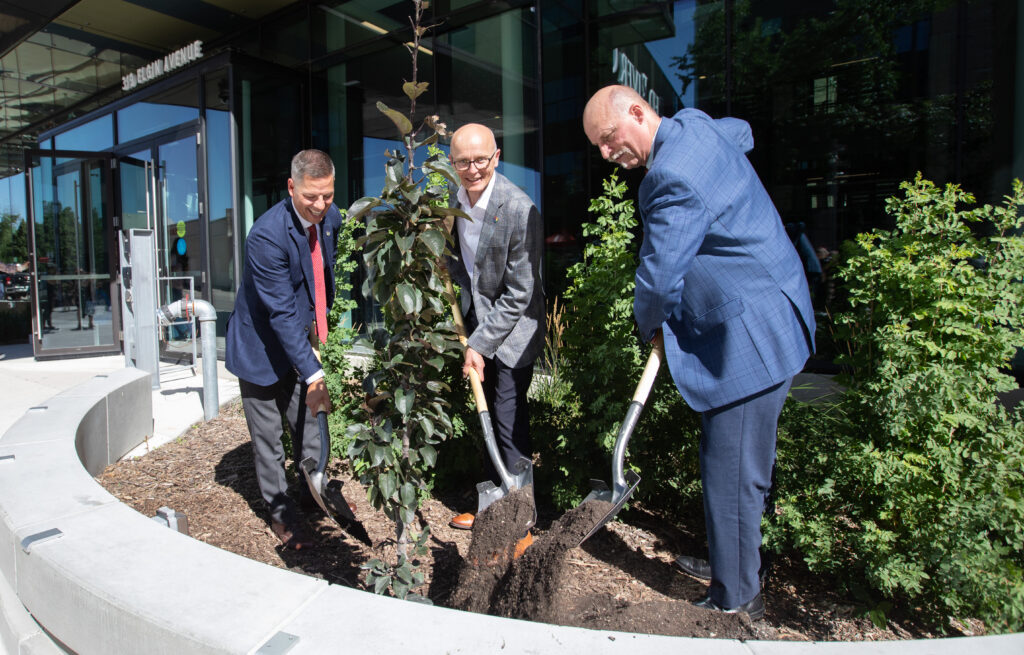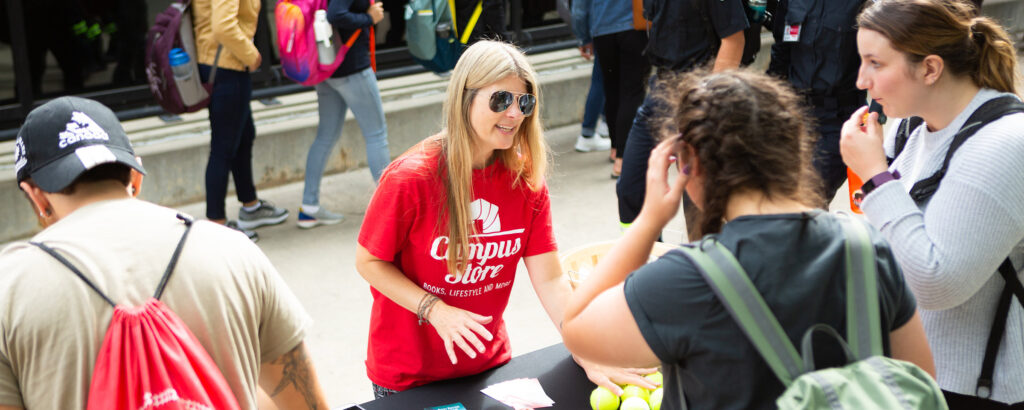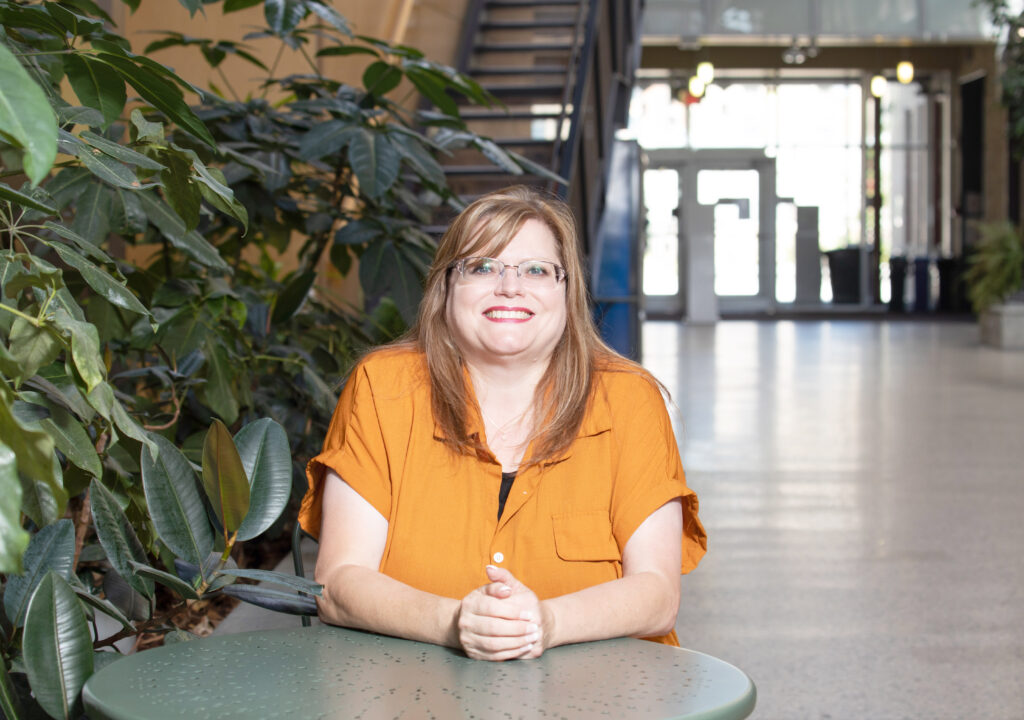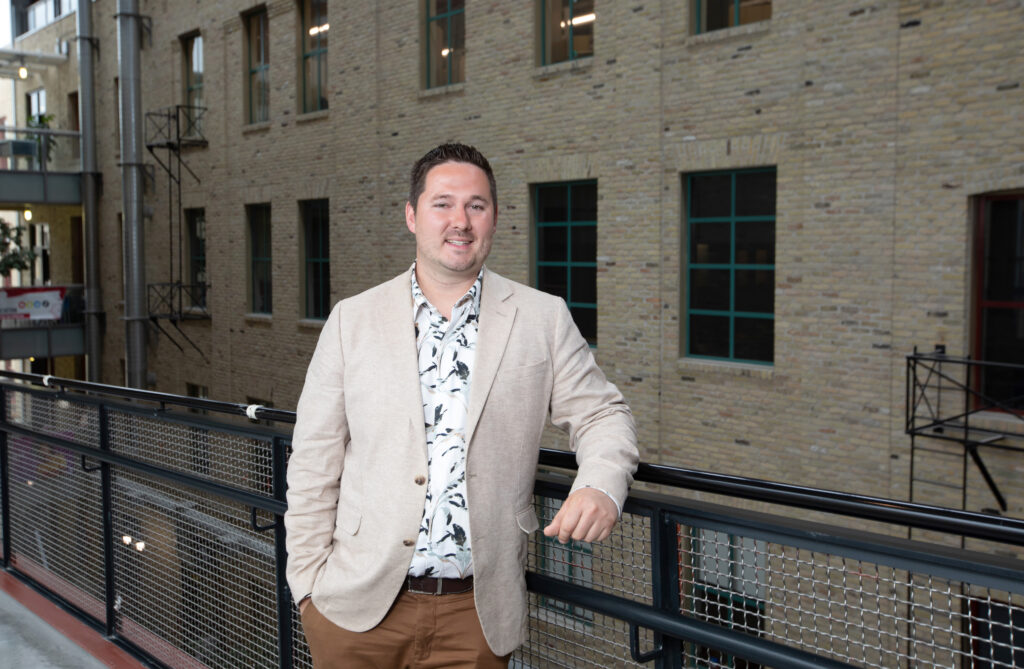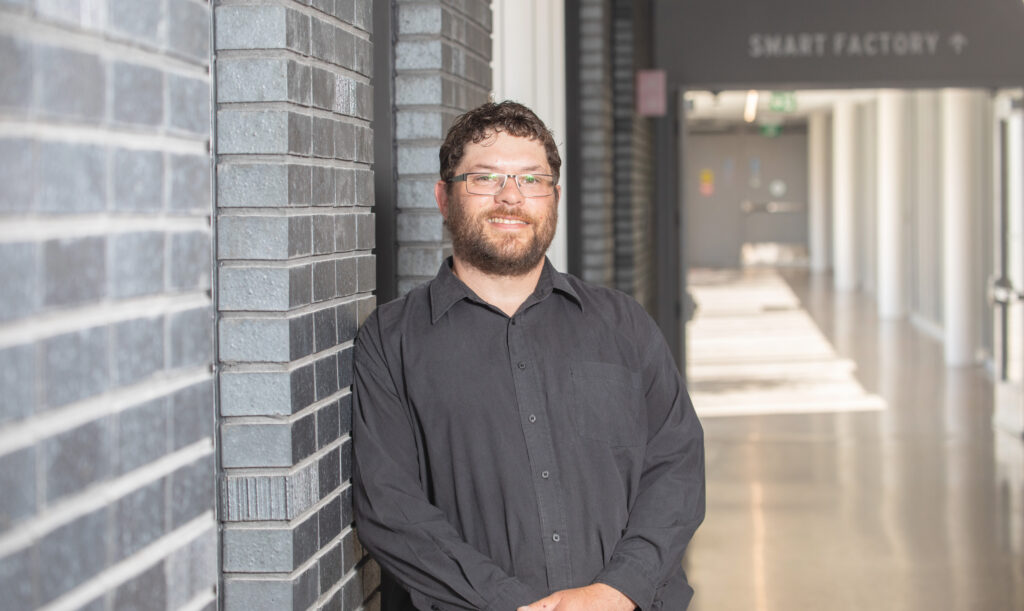College opens new Elgin Plaza, providing community greenspace for students downtown
Students returning to classes at RRC Polytech’s Exchange District Campus will have a new outdoor space to enjoy while studying and connecting with classmates.
Today, Red River College Polytechnic officially opened the Elgin Plaza, nestled between the new Manitou a bi Bii daziigae building and the existing Roblin Centre. The block of Elgin Avenue between Princess and Adelaide Streets was closed to vehicles, with support from the City of Winnipeg, to create a pedestrian plaza.
“We are proud to work with our partners to create a pedestrian connection between buildings, transforming learning spaces and making it feel like a community campus where genuine connections and shared experiences occur,” says RRC Polytech President Fred Meier (shown above, at centre). “Developments like this allow us to build on our partnerships and strengthen our shared vision to enhance the student experience.”
The space was designed by HTFC Planning and Design, and includes outdoor gardens, seating areas, recreational space, removable bollards that allow access for food trucks, a new projector to showcase student work and create community art, and ping pong tables and power outlets to help host outdoor events from students and community members.
When looking up, anyone standing in the Elgin Plaza will have a stunning view of local artist Jackie Traverse’s ceiling installation, which extends from Manitou a bi Bii daziigae’s fourth floor. The Elgin Plaza also features one of the College’s new rainbow walkways, which were unveiled earlier this week.
“The opening of Elgin Plaza is significant for Winnipeg’s downtown,” says Mayor Brian Bowman (shown above, at left). “The City of Winnipeg and RRC Polytech have a longstanding partnership and spaces like this help to bring people downtown and revitalize Winnipeg’s Exchange District. I’m pleased to see another space like this added in our downtown because spending time outdoors and in greenspaces has a positive impact on the well-being of residents in our community.” Read More →

